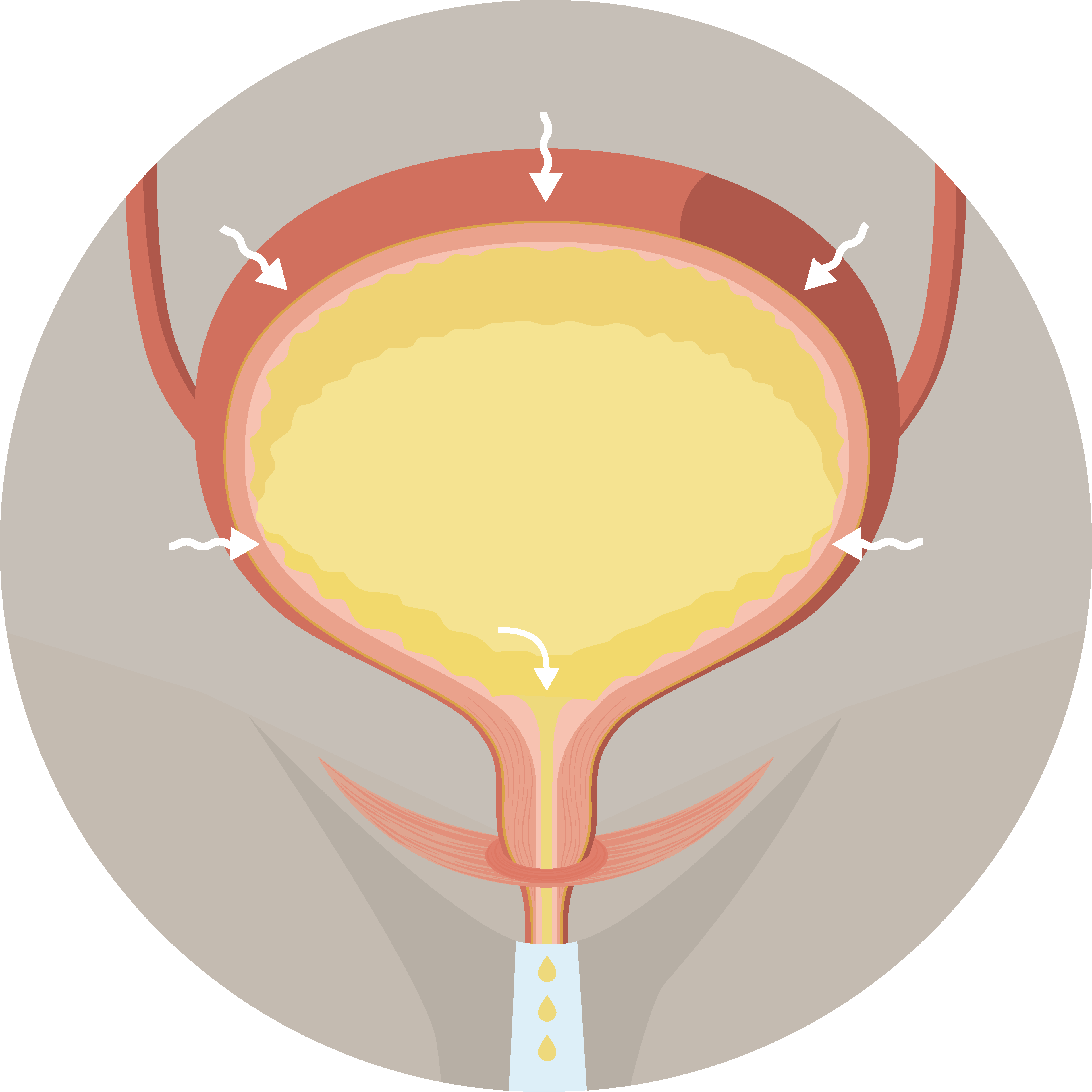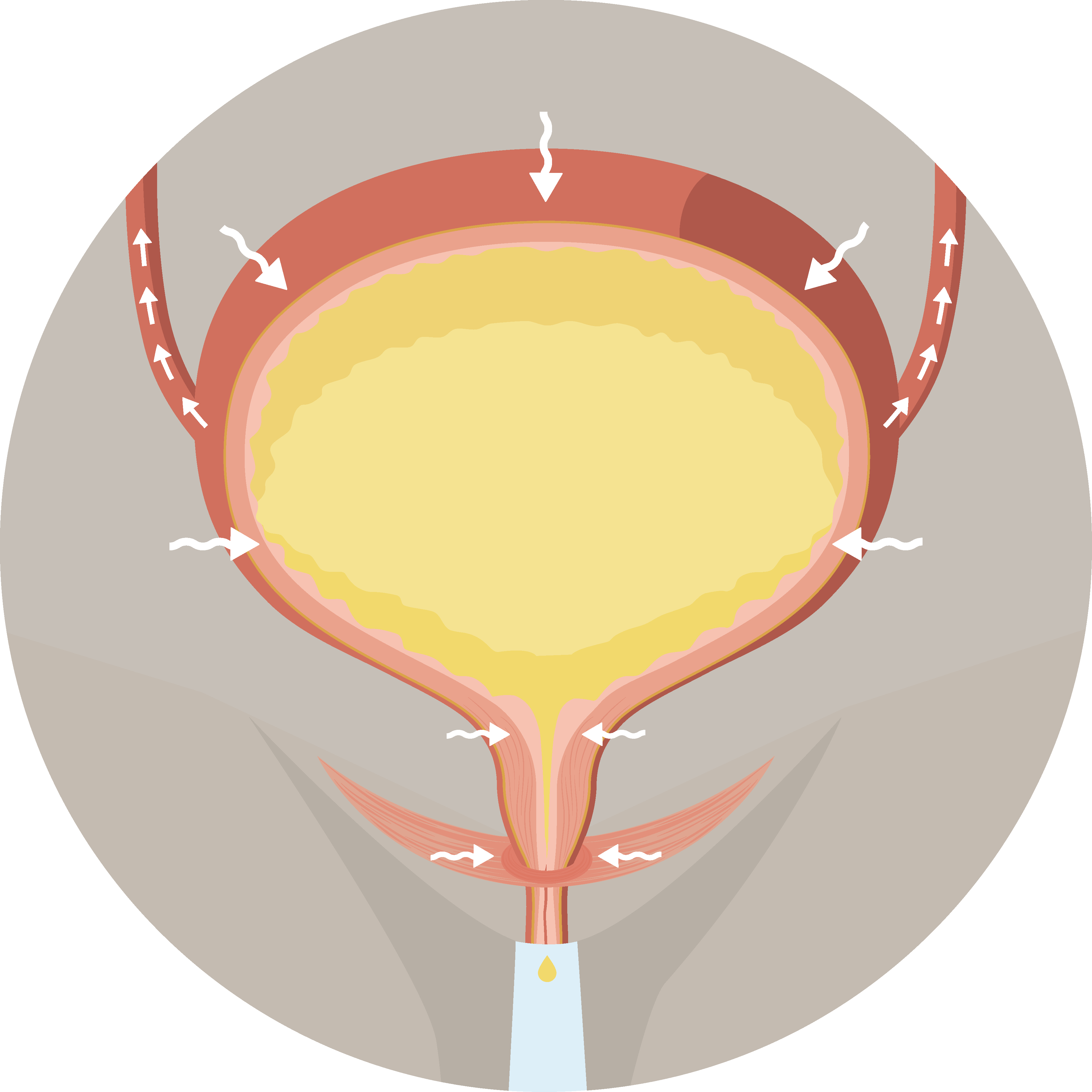
Symptoms of bladder problems with MS

Multiple sclerosis causes damage to the nervous system
Multiple sclerosis causes damage to the nervous system, disrupting messages from the brain, and can therefore interfere with a wide range of bodily functions. Bladder and bowel functioning are particularly susceptible to disruption.
The bladder is a complicated system. As the bladder fills with urine, nerve signals are sent to the brain and trigger the need to go to the toilet. The large muscle in the bladder will begin to tighten, and the external urinary sphincter muscle and the pelvic floor muscles will relax, allowing urine to be passed. When these signals are coordinated, the system works, and the body can pass urine normally.
If MS damages the myelin sheaths that protect the nerves, these signals can be garbled, leading to bladder dysfunctions.

The overactive bladder
More than half of people living with MS experience some form of overactivity or failure to store urine with their bladder. This leads to feelings of urgency, urge incontinence, and means that people need to visit a bathroom more frequently than normal.

Detrusor sphincer dyssynergia
At times, the voluntary and involuntary functions of the bladder stop working together. This can lead to hesitancy, an interrupted stream and incomplete emptying of the bladder. This problem can be seen in 1 in 4 people living with MS. Click the video to learn more.

Retention
Finally, the smooth muscle of the bladder can be ‘underactive’. If this muscle does not work to push the urine out of the bladder, urine can be left in the bladder after going to the bathroom. This is known as urinary retention. You may feel the need to void yourself more frequently and experience a weak urine flow when going to the toilet. Underactivity is observed in 20% of people living with MS. Play the video to learn more.

Recognising signs of bladder dysfunction in your behaviour
It is not always easy to know if you are experiencing bladder issues. Sometimes, for example, people normalise bladder overactivity or don't notice how often they need to use a bathroom, finding coping strategies to deal with their issues. If you can recognise yourself in any of the following statements, it is possible that bladder issues are a part of your life with MS:
- The number of times I need to urinate impacts my daily life
- I get up to urinate several times a night
- I experience an interrupted stream when I pass urine
- I have experienced several UTIs within the last year
Download our bladder diary now to help you reflect on how your bladder is performing and open up a dialogue with your healthcare professional.

"I was going to the bathroom about 30 times a day... maybe more."
Liselotte, living with MS
